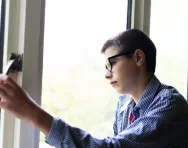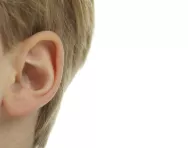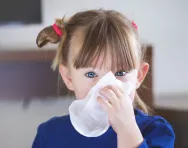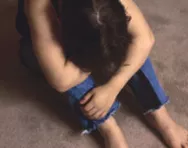TheSchoolRun.com closure date
As we informed you a few months ago, TheSchoolRun has had to make the difficult decision to close due to financial pressures and the company has now ceased trading. We had hoped to keep our content available through a partnership with another educational provider, but this provider has since withdrawn from the agreement.
As a result, we now have to permanently close TheSchoolRun.com. However, to give subscribers time to download any content they’d like to keep, we will keep the website open until 31st July 2025. After this date, the site will be taken down and there will be no further access to any resources. We strongly encourage you to download and save any resources you think you may want to use in the future.
In particular, we suggest downloading:
- Learning packs
- All the worksheets from the 11+ programme, if you are following this with your child
- Complete Learning Journey programmes (the packs below include all 40 worksheets for each programme)
You should already have received 16 primary school eBooks (worth £108.84) to download and keep. If you haven’t received these, please contact us at [email protected] before 31st July 2025, and we will send them to you.
We are very sorry that there is no way to continue offering access to resources and sincerely apologise for the inconvenience caused.
6 primary-school health concerns parents need to look out for

Primary-school health problem: dehydration
What’s the problem? Research shows that many children are dehydrated as a result of not drinking enough. ‘This can lead to headaches, tiredness, dizziness and mood swings, and also affects concentration and performance at school,’ says nutritionist Dr Emma Derbyshire, spokesperson for the Natural Source Waters Association. Children aged four to eight should drink 1.1 to 1.3 litres of fluids per day.
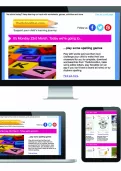

Boost your child's maths & English skills!
- Follow a weekly programme
- Maths & English resources
- Keeps your child's learning on track
How to help:
- Ensure your child always has a drink with breakfast.
- Send a bottle of water to school for them to keep on their desk or drink at lunchtime.
- Ask the teacher if the class has free access to drinking water and regular toilet breaks.
- Make drinking water fun, for example by adding shaped ice cubes or a curly straw.
- Model good habits yourself, drinking six to eight glasses of water a day.
Primary-school health problem: back pain
What’s the problem? Studies show that 72 per cent of primary school children have experienced back pain in the past year. ‘Factors include a sedentary lifestyle, poor posture in the classroom, the increasing use of laptops, smartphones and tablets with little regard to posture, and carrying heavy school bags,’ says paediatric physiotherapist Lorna Taylor.
How to help:
- Encourage your child to be more active to build core muscle strength, for example by walking to school.
- Use a rucksack for school books, or a mono-strap bag worn across the body, rather than on one shoulder.
- Ensure your child only takes what they need to school each day: their bag should be no more than 10 per cent of their body weight.
- Make sure that when they're using a laptop or PC, the screen is at eye level.
- Check out Healthy Working: MOVE, a free online resource, for posture tips.
Primary-school health problem: head lice
What’s the problem? Around a third of schoolchildren will get head lice at some point each year. They spread extremely easily through close contact, and can cause itching and irritation.
How to help:
- The NHS recommends wet combing to treat head lice: wash your child’s hair, apply plenty of conditioner, detangle with a wide-toothed comb and then use a nit comb to work through the hair from roots to tips, wiping the comb between strokes. Repeat on days five, nine and 13 to eliminate new lice as they hatch.
- Medicated treatments can also be used, but only if you find live lice in your child’s hair.
- If your child has head lice, check the rest of the family and treat if necessary.
- Your child doesn’t need to stay at home with head lice, but you should inform the school.
- If your child has long, curly or Afro hair, keep it tied up or braided for school.
Primary-school health problem: emotional health concerns
What’s the problem? Half of all adults with mental health issues experience their first symptoms before the age of 14, so it’s important to be aware of your child’s emotions. ‘There are many potential triggers for emotional health issues, ranging from a family divorce to struggling with schoolwork to bullying,’ says Daphne Joseph, helpline manager at YoungMinds.
How to help:
- Tune into the signs of emotional issues, such as rages, tantrums, tearfulness, sleep disturbances, recurring tummy aches and school avoidance.
- Be available for your child to talk to; try not to blame them or belittle their worries, and ask them what they think might help.
- Involve the school: your child’s teacher and the Special Educational Needs Co-ordinator (SENCO) may be able to offer insights and suggestions.
- Your child’s GP may recommend counselling or other support.
- Call the YoungMinds helpline on 0808 802 5544 for help and advice.
Primary-school health problem: tummy bugs
What’s the problem? Tummy bugs run rife through schools, and are often caused by viruses such as norovirus. They’re mainly spread by poor hygiene, with research showing that only 57 per cent of children wash their hands after using the toilet.
How to help:
- Teach your child to always wash their hands after going to the loo and before eating.
- If they catch a bug, encourage them to drink frequently, avoiding fizzy drinks and fruit juice, and to eat simple foods if they feel up to it. Give paracetamol for fever or pain if necessary.
- Clean the toilet thoroughly after every bout of vomiting or diarrhoea, including the flush handle and seat.
- Keep your child off school for 48 hours after the last episode of sickness or diarrhoea.
Primary-school health problem: head injuries
What’s the problem? ‘Head injuries account for 500,000 A&E visits among children each year,’ explains Lisa Turan, chief executive of the Child Brain Injury Trust (helpline 0303 303 2248). ‘These are typically caused by incidents such as playground falls and bike or scooter accidents, and while the majority of children will be absolutely fine, the consequences could be serious.’
How to help:
- Ensure your child wears a British Standards Kitemarked helmet every time they ride a bike or scooter, even if it's just in the garden.
- Buy helmets in store rather than online so you can check the fit.
- Don’t use a second-hand helmet in case it has invisible damage.
- Ask your child’s school about Bikeability and scooter training courses.
- If your child bangs their head and experiences dizziness, blurred or lost vision, nausea or vomiting or loss of consciousness, take them to A&E.
- Be aware that some symptoms of head injury may not be apparent for up to 36 hours after an accident.
